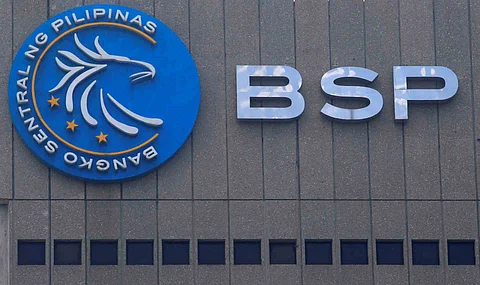
- NEWS
- the EDIT
- COMMENTARY
- BUSINESS
- LIFE
- SHOW
- ACTION
- GLOBAL GOALS
- SNAPS
- DYARYO TIRADA
- MORE

HSBC projects the Bangko Sentral ng Pilipinas (BSP) to continue easing its policy rate toward 5 percent next year.
Due to manageable inflation, HSBC economist for Southeast Asia Aris Dacanay expects overall inflation to remain below 3 percent, encouraging the BSP to further cut its policy rate by 25 basis points next month to 5.75 percent and more reductions until 2025.
Previously, BSP eased its rate by 25 basis points each in August and October toward 6 percent.
Dacanay said the lower BSP rates will be driven by affordable prices of most goods under core inflation which excludes volatile items like food and fuel.
“Core inflation was constant at 2.4 percent year-on-year in October relative to the previous month. This was the 10th consecutive month in low core inflation,” he said.
October inflation slightly increased to 2.3 percent from 1.9 percent in September due to higher prices of food and non-alcoholic drinks which rose to 2.9 percent from 1.4 percent.
National Economic and Development Authority Secretary Arsenio Balisacan attributed the price growth in the commodity group to higher logistics costs after severe tropical storm “Kristine” left over P820 million and P1.4 billion in infrastructure and agricultural damage.
However, Dacanay said food prices remain manageable despite the weather disturbance. PSA reported vegetable prices declined although at a slower pace at 9.2 percent compared to 15.8 percent in September.
Price pressures benign
“We don’t think there is any reason to worry. Price pressures were relatively (and fortunately) benign, considering how supply conditions weren’t favorable due to the typhoons in late September,” Dacanay said.
Month-on-month, rice inflation also fell by 0.5 percent, offsetting the price pressures seen in other commodities and keeping overall inflation at bay, he added.
Rice prices decreased after the government in July started implementing a lower tariff on imported rice at 15 percent from 35 percent, and India lifted its export ban on the commodity.
Dacanay expects rice prices in retail stores to decline over time.
“Global rice prices are currently falling, and we likely have yet to see it through with India resuming its non-basmati rice exports. The full effect of the tariff rate cut of rice has also yet to fully filter through retail rice prices,” he said.
However, Dacanay said the BSP might consider pausing a rate cut next year depending on the US presidential election results and currency exchange movements.
“BSP may opt to briefly pause its easing in December to give itself some flexibility if financial markets remain volatile,” he said.
Financial markets analysts say a victory for Donald Trump might raise global inflation rates as he promised high tariffs on exports to the US which firms can pass to consumers.
The peso might also depreciate against the US dollar which investors consider a haven amid possible economic uncertainties in the US under a Trump administration as the former president is seen to implement radical policies.
